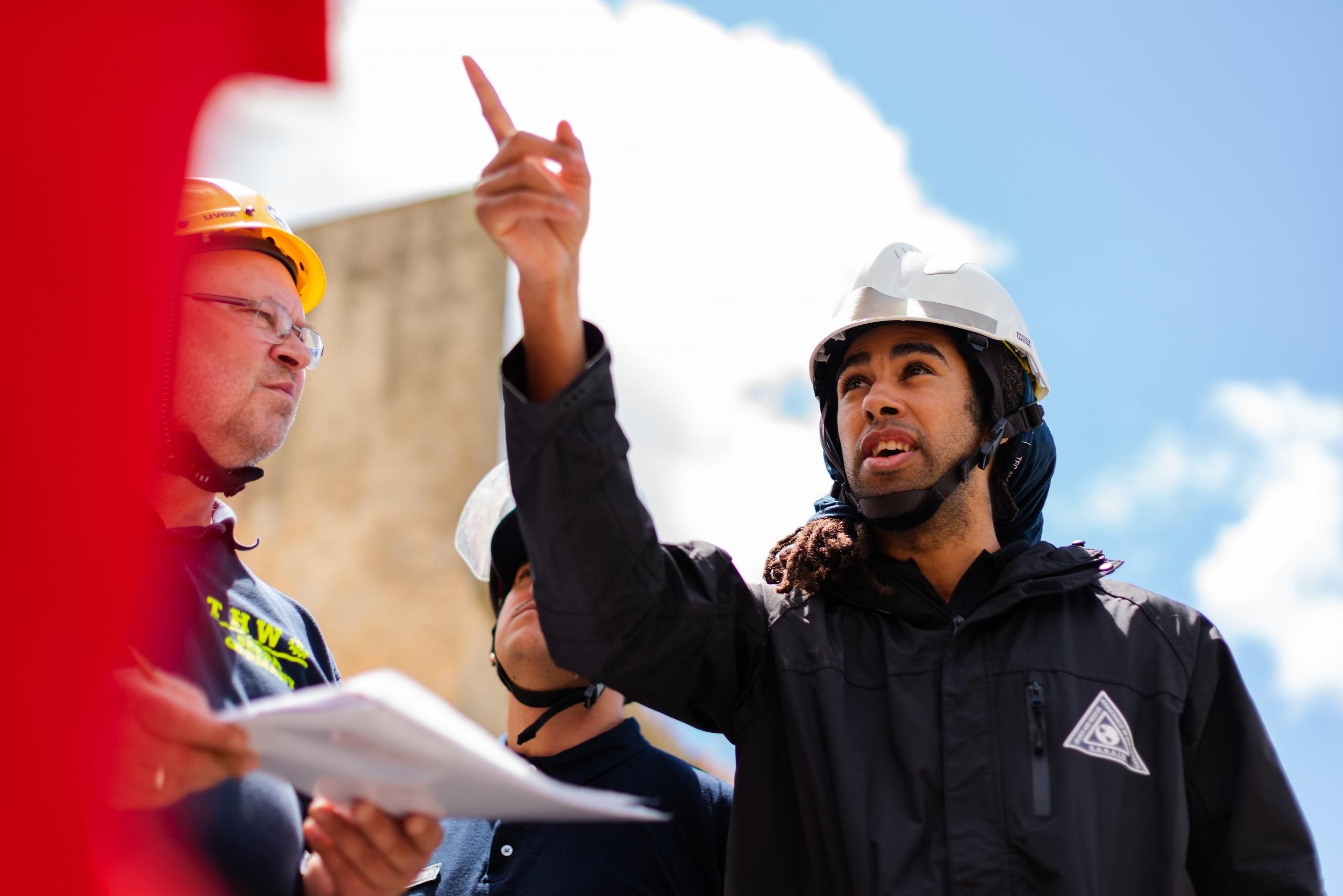Chapters
GCSE Engineering is a practical subject perfect for students who prefer a more hands-on approach to learning. This vocational GCSE will provide you with a taste of the real working world as well as an opportunity to explore the engineering sector. If you are eager to work with your hands and you enjoy active learning then this GCSE Engineering may be a great choice for you. To earn your qualifications, you will
- tackle collaborative projects
- engage in manual work
- learn how to use the latest technology and tools of the trade
- gain insight and practical experience in engineering careers
According to the UK government website, this GCSE course will require problem-solving skills and practical innovation from the participant. It teaches about construction and the properties of engineering materials, from the physical to the mechanical. Admittedly, that's a limited take on the discipline; there's more than one type of engineer, after all. But the course will teach critical foundational skills that you can expand on when you're at university.

An Overview of GCSE Engineering
As you will already be aware, engineering involves design and construction. But as with any subject, there’s more than meets the eye. There is a lot more to GCSE engineering, and plenty to learn from taking the course.

If you study GCSE engineering you will learn about a variety of processes. These include how to create design briefs, how businesses convert design briefs to design specifications and the application of technology to manufacturing.
The engineering industry is vast and varied and there are many different areas you could work for within it. Some of the main aims and objectives of this GCSE are to understand emerging technologies, learn about proper health and safety procedures, and be mindful of sustainable development.
Specifically, you will learn how to solve problems using a logical and systematic approach, using all kinds of charts and diagrams to do so. You will also get familiar with various computer-based programmes to help solve problems, which can be fun to interact with.
What can I expect from GCSE Engineering?
GCSE engineering is a fascinating subject to take due to the content, but the different ways it’s taught and the doors it can open for you are equally as interesting. This is a non-traditional subject, and as such, some of the lessons may take an unorthodox approach. Don’t expect to sit at a desk and write too many essays. Instead, prepare yourself to engage in all kinds of collaborative projects based on real-world information.
There’s a lot of mathematics involved in GCSE engineering since you’ll need to figure out dimensions and measurements to succeed in the course. If this is something you’re concerned about and you don’t enjoy crunching numbers, don’t worry. The great thing about this course is that most things will be taught in the context of real-life engineering problems. Those numbers you’re afraid of seeing on the page will turn into a swimming pool or a machine instead.
Learning different skills like maths in a context like this can be quite rewarding. STEM courses always teach far more than what their names advertise. It’s almost like when your parents would try and slip some vegetables into your food. Although you might not like them, you’ll benefit from eating them in the long run.

Collaborative Projects
A GCSE in engineering provides many opportunities to participate in group work. Working in a group is an exciting and rewarding way to learn that can also help boost your confidence and social skills. This is especially true if you identify with the interpersonal learning style.
Students who prefer this learning style thrive in group settings and enjoy nothing more than solving problems through healthy discussion and teamwork. This is as opposed to the intrapersonal learning style, which is more about setting one’s own goals and working in isolation.
Being able to work well in a team is an invaluable skill that will serve you well throughout your life. It’s an exceptional skill to develop, and one which applies as much to the office as it does to the construction site. You can’t expect to walk into a job and thrive if you’re afraid to work on a project with your colleagues.
It might not be something you do all of the time in your job. But being able to work well in a team towards a common goal is hugely important, even if you decide not to pursue a career in engineering.
Flexibility
GCSE engineering is a very flexible course. You may choose whether to take the single or double honours course in this subject. Also, you will be encouraged to be creative and original in the practical activities. There is plenty of theoretical content but you will have your fair share of practical work to get stuck into.
This makes it a viable GCSE choice for both the avid learner and those who enjoy hands-on work. It’s also a course that will teach you about the latest use of technology. You will pick up transferable skills that you can apply to your other GCSE subjects. GCSE Science is a great course to complement your engineering studies.
Real-World Insight
GCSE engineering can provide plenty of insight into the working world. During this GCSE course, you will have the opportunity to visit industries and businesses which will provide you with practical experience relevant to getting a job. By seeing first-hand how various mechanical and electrical processes are carried out, you can get to grips with the course's content and deepen your understanding of the engineering métier.
Some people identify as kinaesthetic learners, which means they learn best when moving around and interacting with the world. These are the kind of learners that will benefit most from going to job sites and gaining first-hand knowledge of various engineering processes. Many students who complete this qualification go on to take higher-level courses in engineering or a similar subject.
Varied Assessment
Let’s be honest, few people enjoy taking exams. The great thing about a subject like GCSE engineering is that the assessments are varied. This means your work will be assessed through a mixture of exams and controlled internal assessments (coursework you complete within a time frame in lessons).
As a result, you can show what you’ve got without having to perform in the high-pressure environment that the exam hall can oftentimes be. Given it’s a practical subject, the emphasis is on coursework within GCSE engineering. That means the work you put in day in and day out will be credited.
So be prepared to use effective revision strategies that work for you. Attend all the lessons you will complete coursework in and make the most of your allotted time. Just make sure you figure out your course timetable. Otherwise, you might end up missing out on vital information.
Engaging Work
The work you’ll do in GCSE engineering is varied and engaging, more often than not. In this GCSE you certainly won’t be working from textbooks week after week. For a lot of students, this sounds like a dream come true since it proves that learning isn’t something you exclusively do with the help of a textbook.
In this non-traditional subject, you will get the chance to do all kinds of activities which advance the curriculum. This covers just about all of the different learning styles, so there’s truly something for everyone. Whether you prefer solo work or group work, you’ll get plenty of opportunities to work the way you prefer throughout the course.
Such activities include carrying out independent research, participating in group work, and taking advice from people who are working in engineering. You’ll do everything from joining and assembly using an assortment of materials. You'll try your hand at casting and moulding with pressure die-casting and injection moulding.
There’s also plenty of cutting, milling, drilling, and chemical etching to do, which are all as enjoyable as they sound. Essentially there’s little you won’t do in GCSE engineering. So if you do end up in an engineering-based career you’ll be familiar with a lot of the basic procedures.

Career Options
GCSE engineering is a vocational subject, which means it has a direct pipeline to the world of work. If you study this course, you’re setting yourself up well if you have aspirations of becoming an engineer at some point in the future. Even if you don’t specifically want to be an engineer, you’ll pick up practical, mathematical, and logical skills that can help you with many different career options.
If you have ever sat in a lesson wondering when you are ever going to use the information that you are being taught again then GCSE Engineering may be perfect for you. You’ll likely find that even if you don’t use everything that you learn in this subject later in life, you’ll be glad you know all about how things work around you.
The practical day-to-day application of engineering is huge, so it’ll likely come up in your life or just in future conversations. This vocational subject is designed to prepare you for a future career in engineering. Therefore, everything on the syllabus is relevant to the industry.
So if you’re tired of being stuck in a classroom all day and are excited about the prospect of practical GCSE then Engineering may be a great choice for you. GCSE Engineering is a practical, exciting and useful subject. It's a valuable opportunity for practically-minded students interested in learning more about engineering.
















